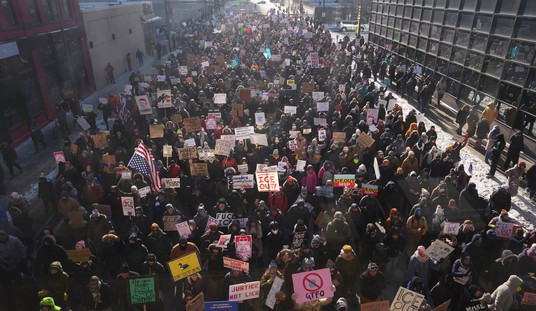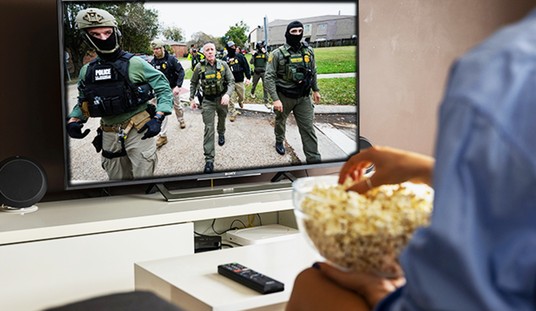Amazon may have issued a “declaration of support” in January for a lawsuit against President Trump’s order to put a temporary halt to immigration from seven Muslim-majority countries, but that hasn’t stopped outraged Muslims from planning a May 1 demonstration at the front door of the company’s headquarters in Seattle.
The Service Employees International Union and three Muslim guards who work for Security Industry Specialists, the security contractor Amazon uses to guard its facility, accuse SIS, and by implication Amazon, of refusing to allow the guards space to pray five times daily, even though members of other religions are granted the privilege of using prayer rooms.
Essag Hassan, a former SIS guard at Amazon, said he was let go because of his request to be allowed to pray on his work break.
“I was fired and not given a reason why,” Hassan said. “I’m speaking out for all Muslim security workers and for workers of any religion. When you ask for a space to pray on your work break, that request should be treated with respect.”
The SEIU told PJM “a strongly worded letter” from the “Seattle faith community” would be delivered to Amazon during the rally planned outside the company’s headquarters.
“Unlike other companies in locations with large Muslim populations, Amazon has not supported Muslim service workers requesting space to pray during their law-mandated work breaks,” the SEIU email to PJM said.
“Despite granting the high-earning tech workers conference rooms to pray in, there appears to be a double standard for the contracted security officers who protect the tech giant,” the SEIU email concluded.
The May 1 rally won’t be the first time SEIU and former SIS guards who are Muslim have knocked at Amazon CEO Jeff Bezos’ front door.
The South Seattle Emerald reported in February “hundreds of devout Muslims, clergy, labor unionists” and even some Amazon workers took part in a prayer rally to demonstrate against SIS policy regarding prayer rooms.
“There’s been issues regarding religious prayers, [with some not being] given a space to practice,” Ismahan Ismail, a security specialist at Amazon, told the South Seattle Emerald. “When I did speak up, I was actually retaliated against. I had someone step on my prayer items.”
However, another guard took the microphone at the February rally and made it clear that the problem is not with any of Amazon’s corporate policies.
“I want to set the record straight,” Usama Baioumy said. “Amazon provided us with a prayer room. … I pray in the room here. Amazon helped us by providing prayer rooms across the building.”
The guards are not members of SEIU or any union. However, the Service Employees International Union has supported the SIS guards’ protests for several years. The union organized a protest against SIS in 2014 that featured the Rev. Jesse Jackson.
Jackson compared the security company with the Ferguson, Mo., police department. An SIS executive told KNKX radio that SEIU was behind a “vicious corporate” effort to pressure the guards to unionize.
As far as the current controversy goes about Muslims being denied prayer rooms, SIS CEO Tom Seltz told Think Progress nothing could be further from the truth. He wrote in an email that SIS employees working at Amazon have always been given space to pray on breaks.
“Before prayer rooms were introduced, employees generally used a vacant conference room or quiet room, when available,” Seltz wrote. “This has been the case for the past four years (since we’ve been at Amazon), and the recent addition of dedicated prayer rooms has just made access even easier.”
However, the Think Progress article also quoted a guard who disputed Seltz’s claim.
This dispute over prayer rooms for Muslims isn’t the first problem SIS has had with its workers and the Seattle community. And the guards and the SEIU are not the only people or entity that have put pressure on Amazon because of the security contractor’s record of employee relations.
The Seattle Times reported that SIS settled a charge filed by the Seattle Office for Civil Rights in March 2015 that it had violated the city’s law regarding paid sick time. However, it said SIS also admitted no wrongdoing.
And then there was the complaint filed with the National Labor Relations Board alleging SIS had prohibited its employees from talking to each other about unionizing. The company also settled that problem with the NLRB and the case was closed.
Seattle City Councilmember Kshama Sawant said in January her fellow council members should have SIS on their minds when deciding if Amazon should be given an alley that runs through the property where Amazon is building two office towers.
“Amazon has outsourced security guards to a company,” Sawant told the Seattle Times, “to try to avoid letting them have their democratic right to a union.”









Join the conversation as a VIP Member